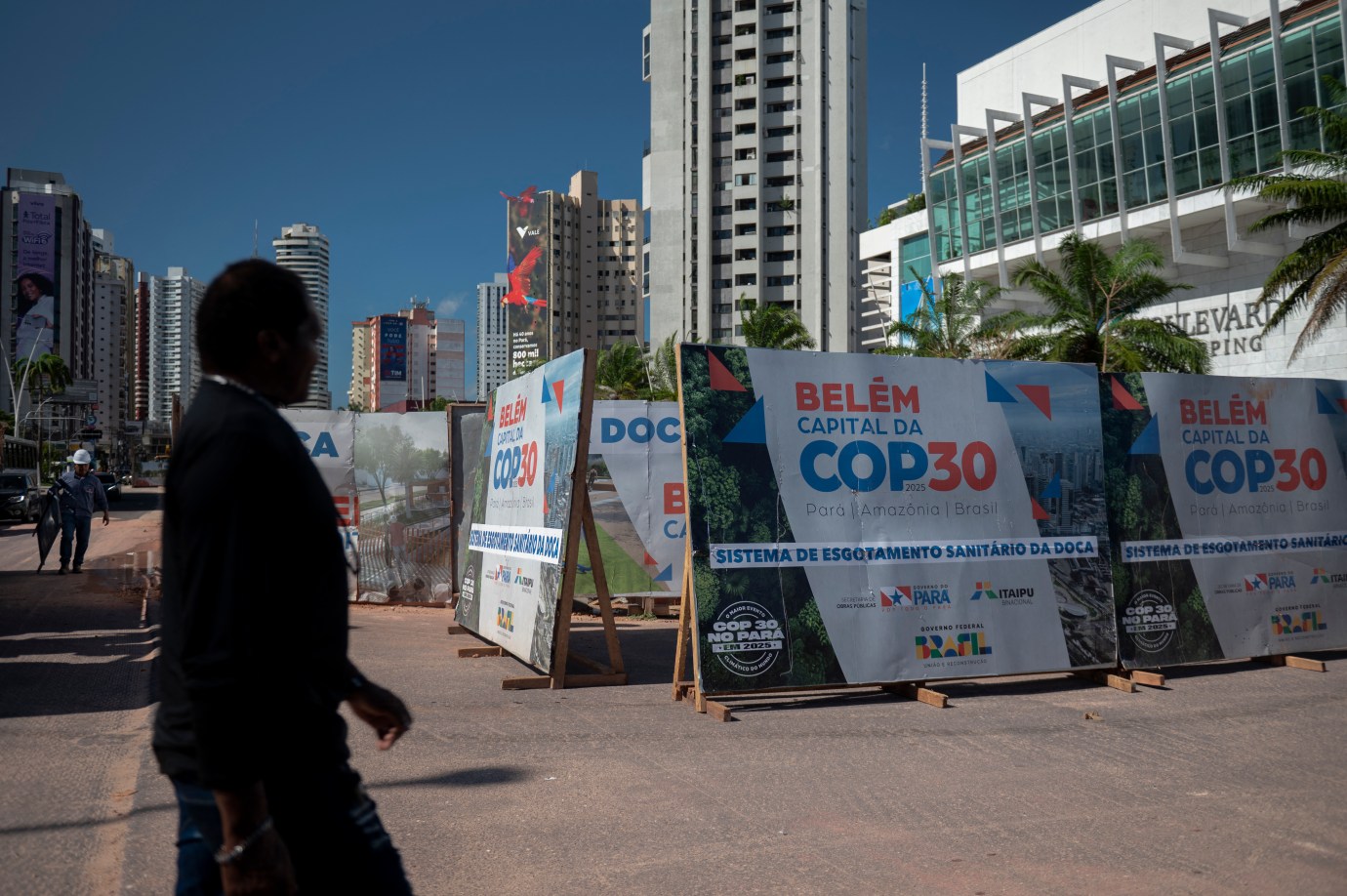Happy Tuesday! And exciting news, Dispatch readers: We’ll be holding a special Premium Town Hall this Wednesday, August 27, at 8 p.m. ET. Founders Steve Hayes and Jonah Goldberg will talk about the biggest stories in D.C. and beyond—and preview a special new project we’ve been working on. Premium members can participate in the event live on Zoom. Not a Premium member yet? Upgrade your membership here.
Quick Hits: Today’s Top Stories
- President Donald Trump attempted to fire Federal Reserve Governor Lisa Cook for cause on Monday, citing allegations that she committed mortgage fraud by claiming two homes as her primary residence in 2021. Cook said she would not step down and argued Trump lacks the authority to remove her, setting up a likely legal battle. Fed governors serve staggered 14-year terms designed to insulate the central bank from political influence, and no president has previously sought to fire a Fed governor. Director of Federal Housing William Pulte, who aired the mortgage fraud accusations, thanked the president on X for his “commitment to stopping mortgage fraud and following the law.”
- Israeli Prime Minister Benjamin Netanyahu called the Monday morning shelling of Gaza’s Nasser Hospital a “tragic mishap,” after IDF tanks reportedly killed five journalists and an unknown number of rescue workers. Military officials told Hebrew-language Israeli media that the tank’s shell targeted a camera on the hospital, believing the device to be operated by the terrorist group Hamas, then fired the second when rescuers rushed to the scene. Netanyahu said in his X post that “military authorities are conducting a thorough investigation,” and although the IDF has yet to provide specifics of the incident, spokesman Brig. Gen. Effie Defrin said in an English-language video that it does not “intentionally target civilians,” and noted the complexity of fighting the terrorist group Hamas, who “deliberately use civilian infrastructure, including hospitals, as shields.” The Foreign Press Association in Israel, representing international journalists in Israel, Gaza, and the West Bank, issued a statement Monday saying that it was “outraged and in shock.” Meanwhile, the Israeli Prime Minister’s office said on Monday that Israeli troops would withdraw from southern Lebanon if the Lebanese government took steps to disarm Hezbollah.
- The Israeli Prime Minister’s office said on Monday that Israeli Defense Forces troops would withdraw from southern Lebanon if the Lebanese government took steps to disarm the paramilitary group Hezbollah. Mahmoud Komati, a senior Hezbollah official, said Monday that his organization refused “any direct cooperation with the Zionist enemy or collusion against Lebanon’s people and its resistance.” In recent weeks, U.S. diplomat Tom Barrack has led an effort to convince Lebanon to disarm Hezbollah in exchange for the withdrawal of Israeli troops and the end of strikes against Hezbollah targets.
- Australian Prime Minister Anthony Albanese accused Iran on Tuesday of directing antisemitic arson attacks in Australia and announced his country was severing diplomatic relations with Tehran. Australian intelligence concluded Iran’s government orchestrated attacks on a kosher food company in Sydney last October and the Adass Israel Synagogue in Melbourne in December, with authorities saying the incidents were part of a broader pattern of foreign-directed violence. Albanese said Australia would also pursue legislation to designate Iran’s Revolutionary Guard Corps as a terrorist organization following what he called “extraordinary and dangerous acts of aggression orchestrated by a foreign nation on Australian soil.”
- Elon Musk’s AI company, xAI, and his social-media company X (formerly Twitter) sued Apple and OpenAI on Monday, alleging the firms “colluded” to maintain a generative AI monopoly. Apple’s Siri voice assistant shares more complex queries with OpenAI’s ChatGPT, with no option for changing the underlying model. Earlier this month, Musk threatened to sue Apple in a post on X, claiming that the company made it impossible for any company other than OpenAI to reach the No. 1 spot in the App Store. “This latest filing is consistent with Mr. Musk’s ongoing pattern of harassment,” said an OpenAI spokesperson, alluding to Musk’s strained history with the company. Musk was one of OpenAI’s original co-founders, providing $45 million in early funding, only to leave the board in 2018 amid disagreements over the foundation’s future direction, while publicly citing potential conflicts of interest with Tesla.
- Thousands of residents in northern California and central Oregon were under evacuation orders Monday as two wildfires consumed thousands of acres in both states. The Pickett Fire, in Napa County, had grown to 6,803 acres as of Monday afternoon, with 15 percent of the fire contained. The Flat Fire, in Oregon’s Deschutes and Jefferson counties, had burned through nearly 22,000 acres, with 5 percent containment, as of Monday afternoon. Both states have been experiencing a major heat wave in recent days, which has exacerbated dry conditions and increased fire risk.
- Immigration authorities took Kilmar Abrego García, an illegal immigrant residing in Maryland who had been deported to El Salvador in error and returned to the U.S. last week, into custody again on Monday at an immigration check-in. Federal immigration officials said Friday that they intended to deport him to Uganda, but on Monday afternoon, Judge Paul Xinis ordered Garcia’s deportation temporarily blocked pending an evidentiary hearing in his case against the government. The federal government has also offered Abrego García a plea deal, under which he would be deported to Costa Rica; however, his lawyers stated that he would not accept it.
Trouble in the Jungle

The Brazilian port city of Belém—situated along the Amazon River and rainforest—appears to be a fitting location to host an international gathering seeking to advance environmental policy. As Brazilian President Luiz Inácio Lula da Silva said in February, shortly after announcing Belém as the host city for the U.N. climate change conference known as COP, “It’s a COP in the Amazon, not a COP about the Amazon, because it involves 196 countries and they are all responsible for balancing the climate and ensuring that forests are not destroyed.”
In Lula’s views, the location of COP30 was a win for international attendees and locals alike. Conferencegoers would be able to experience first hand environmental challenges in the Amazon rainforest—which, scholars note, is facing troubling deforestation and increasing average temperatures—while Belém residents would see an influx of investment, consumers, and subsequently, development.
However, as the 11-day November summit draws closer, logistical concerns about hosting a large-scale international conference in the Amazon rainforest have intensified. According to Brazil’s 2022 census, Belém had a population of approximately 1.3 million people; but officials stated that as of 2023, the city had only around 18,000 available hotel beds. (By comparison, Dallas has an almost identical population but more than 35,000 hotel rooms.) Belém’s room prices have jumped as much as 10 to 15 times their standard rates, with some countries shrinking their delegations as a cost-cutting measure; and although officials aim to reach 50,000 available beds, time is short, and organizers are having to get a bit more creative.
Come November, some foreign diplomats and climate scientists will be staying on cruise ships docked in the city’s port terminal during the summit. Others will sleep in Belém’s many love motels, which charge both hourly and overnight rates, and whose rooms often come equipped with risqué artwork, colorful flashing lights, a dance pole, and erotic furniture. As one motel owner told the New York Times, “this might be a bit awkward,” but with some luxury hotel rooms costing as much as $267,000 for an 11-day stay during the conference, love motels might have to make do for some attendees.
Though there has been pressure for a last-minute switch to a different host city, organizers have maintained that Belém remains the only viable location for the COP, which stands for Conference of Parties. “The COP will be in Belém, the leaders’ summit will be in Belém,” COP30 President Andre Correa do Lago said earlier this month. “There is no Plan B.” But does any of this matter? What purpose does a global climate conference serve if the world’s biggest polluters—China and the U.S.—are not participating?
In April, Secretary of State Marco Rubio eliminated the State Department’s Office of Global Change, the federal body responsible for climate-related international diplomacy, and terminated its employees. This doesn’t mean there won’t be American voices heard in Belém, only that those voices won’t represent the federal government. Philip Rossetti, a resident senior fellow on energy at R Street Institute, told TMD, “You might have attendees that aren’t necessarily representing the administration or the government, but they still might … be able to open up dialogue.” In fact, most COP attendees are not part of delegations sent by foreign leaders, but are individuals who work or conduct research in the field of climate policy. “You have a lot of people who aren’t actually affiliated [with the] government,” Rossetti said, “but are going there just to participate in public events and meet other people who are interested in these issues and have their own sort of side chats and side events.”
Still, Brazil’s goal is that, by the time the summit concludes, COP30 won’t go down in the history books as just another annual climate conference. “Let us imagine that, in 2028, the world will look back at 2025 not only as a year of negotiation, but as a moment of global alignment,” Correa do Lago wrote on May 8 in a public letter, “when governments, communities, business and institutions came together to shift the trajectory of humanity’s relationship with the planet.” Kimberly Clausing, a professor in tax law and policy at the University of California, Los Angeles and a National Bureau of Economic Research research associate, told TMD that while COP summits in recent years made “incremental efforts here and there, I think there is some desire to see something more bold coming out of this COP.”
Past COP meetings produced the Kyoto Protocol in 1997, the Paris Agreement in 2015, and, just last year, world leaders agreed to adopt a $300 billion annual target in collective contributions for poorer nations to deal with climate change-related damage. But with the Trump White House pulling the federal government’s COP30 delegation, Catherine Wolfram—a professor of energy and applied economics at the Massachusetts Institute of Technology’s Sloan School of Management and former Treasury Department deputy assistant secretary for climate and energy economics—told TMD that Brazil is “looking for ways to downplay the fact that the U.S. isn’t there,” fearing, in part, that other countries might follow the U.S. out the conference room door. “They definitely don’t want that to happen,” Wolfram added, “and so, I think they’re looking for things they can do to move forward without the U.S.”
The U.S. emitted about 4.91 billion metric tons of carbon emissions in 2023—second to only China’s 11.9 billion—which, as Clausing noted, makes the U.S.’s share of global emissions about 13 percent. “So, getting progress across the board requires a lot more than the United States, and there’s a lot that the rest of the world can do on their own.” But, as true for all negotiations, each party wants a fair deal and assurance that they’re not drawing the short end of the stick. “I think one of the big tensions is, what is fair here?” Clausing said. One source of division is determining which carbon emission metrics to use: the total, cumulative emissions from a single country over time, or that country’s current rate of emissions at present? “It’s not always clear that every country is taking similar sacrifices,” Clausing added. “Some are doing a lot more than others.”
“There’s certainly a leadership vacuum with the United States stepping away,” Clausing said. “This provides an enormous opportunity for China to characterize itself as a country that is very much interested in leading in this space.” In prior COP conferences, the U.S.’s primary gripe with China was its role as a free rider; the country would benefit from global climate deals but bear little to no cost.
“One of the challenges is that, even though the United States is the second largest emitter, there are very few commitments from the world’s largest emitter, which is China,” Rossetti said. “So, from a kind of strategic perspective,” he added, “the U.S. just doesn’t want to do anything if it’s going to put it in a worse position, both economically and strategically, vis-à-vis China.” While China did not send a delegation to COP29 in November 2024, Chinese state-sanctioned media reported in April that President Xi Jinping planned to submit 2035 climate and emission targets before COP30, as required by all Paris Agreement signatory nations.
However, Xi’s renewed environmental stewardship may not be motivated by well-meaning concerns about climate change. One official told Politico, shortly after the administration eliminated the Office of Global Change, that doing so was “just strategically f—ng dumb when it comes to China.” As Wolfram explained, “China has invested a lot in kind of the decarbonization technologies that will be necessary to decarbonize the world.” China holds about 76 percent of total clean tech factory investment globally, and dominates international markets for batteries, solar panels, and wind turbines, according to an April report from Bloomberg New Energy Finance (BNEF), the news agency’s research subsidiary. Demand for climate action often leads to demand for clean energy, and China has worked to become the global supplier for clean energy products, with 43 percent of its clean energy exports going to “emerging markets,” per the BNEF report.
“So, even if [China] didn’t care about climate change at all,” Wolfram added, “it might be in their interest to help the rest of the world get there.”
Today’s Must-Read

Feudalism Was Hell for the Poor
Toeing the Company Line

Socialism Without Socialism

How to Murder an Economy With Happy Talk

Will Restricting Food Stamps Really ‘Make America Healthy Again’?

Political Retribution? | Interview: Saikrishna Prakash
Worth Your Time
oes historical accuracy matter in video games? Or should immersion and a fun world matter more than authenticity? Prompted by the recent release of Mafia: The Old Country, this is the question Tom Faber wrestles with in the Financial Times. “This new action-adventure game takes the long-running gangster series back in time to turn-of-the-20th-century Sicily and the early days of Cosa Nostra, with some clear hat-tips to The Godfather Part II. It is not just the immaculately starched collar of the Don’s shirt or the elaborate ruching on his wife’s dress, but the entire gorgeous landscape that offers a sensuous invitation to surrender yourself to history.” As he writes, “Game developers love to set their stories in real-world historical locations like these. Just as in other media, such settings offer a ready-made backdrop that is familiar enough to be relatable, but distant enough to still feel like an escape. As the graphical fidelity of video games reaches ever dizzier heights, the medium is truly entering its period drama era, offering an immersion in history that even most TV series cannot match. Yet developers are also faced with difficult decisions about when a focus on historical accuracy might hamper, rather than enrich, their games — or even enrage their fan base.”
Presented Without Comment
USA Today: Trump Signs Order Aiming for One-Year Jail Terms for Flag Burning
Also Presented Without Comment
BBC: First Professional Bog Snorkeller Defends Title
Also Also Presented Without Comment
The Independent: Trump Insists He Is Not a Dictator—But Claims That Many People Think the U.S. Could Use One
Let Us Know
Have any thoughts or questions about today’s newsletter? Drop us a note in the comments!









Please note that we at The Dispatch hold ourselves, our work, and our commenters to a higher standard than other places on the internet. We welcome comments that foster genuine debate or discussion—including comments critical of us or our work—but responses that include ad hominem attacks on fellow Dispatch members or are intended to stoke fear and anger may be moderated.
With your membership, you only have the ability to comment on The Morning Dispatch articles. Consider upgrading to join the conversation everywhere.